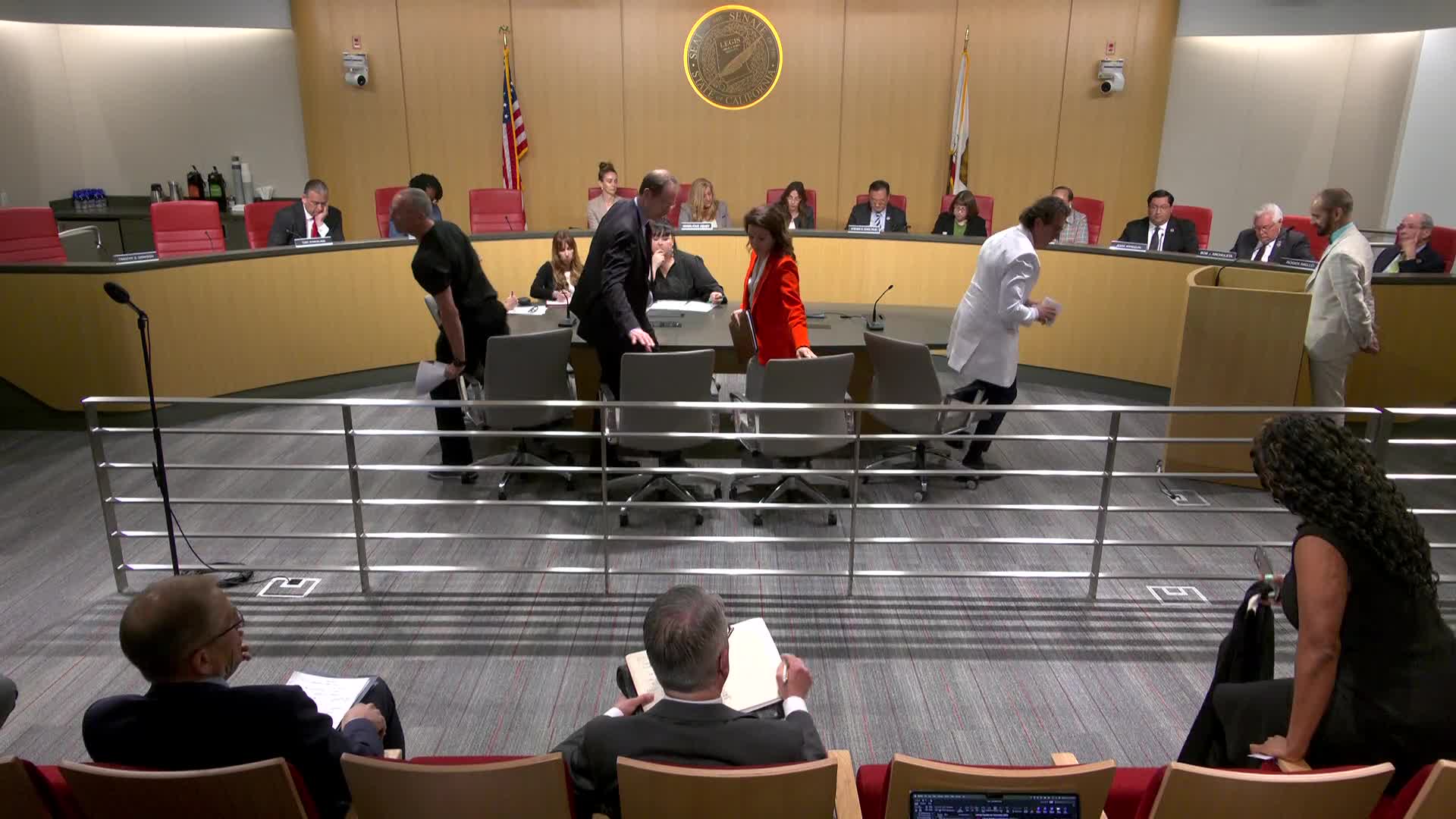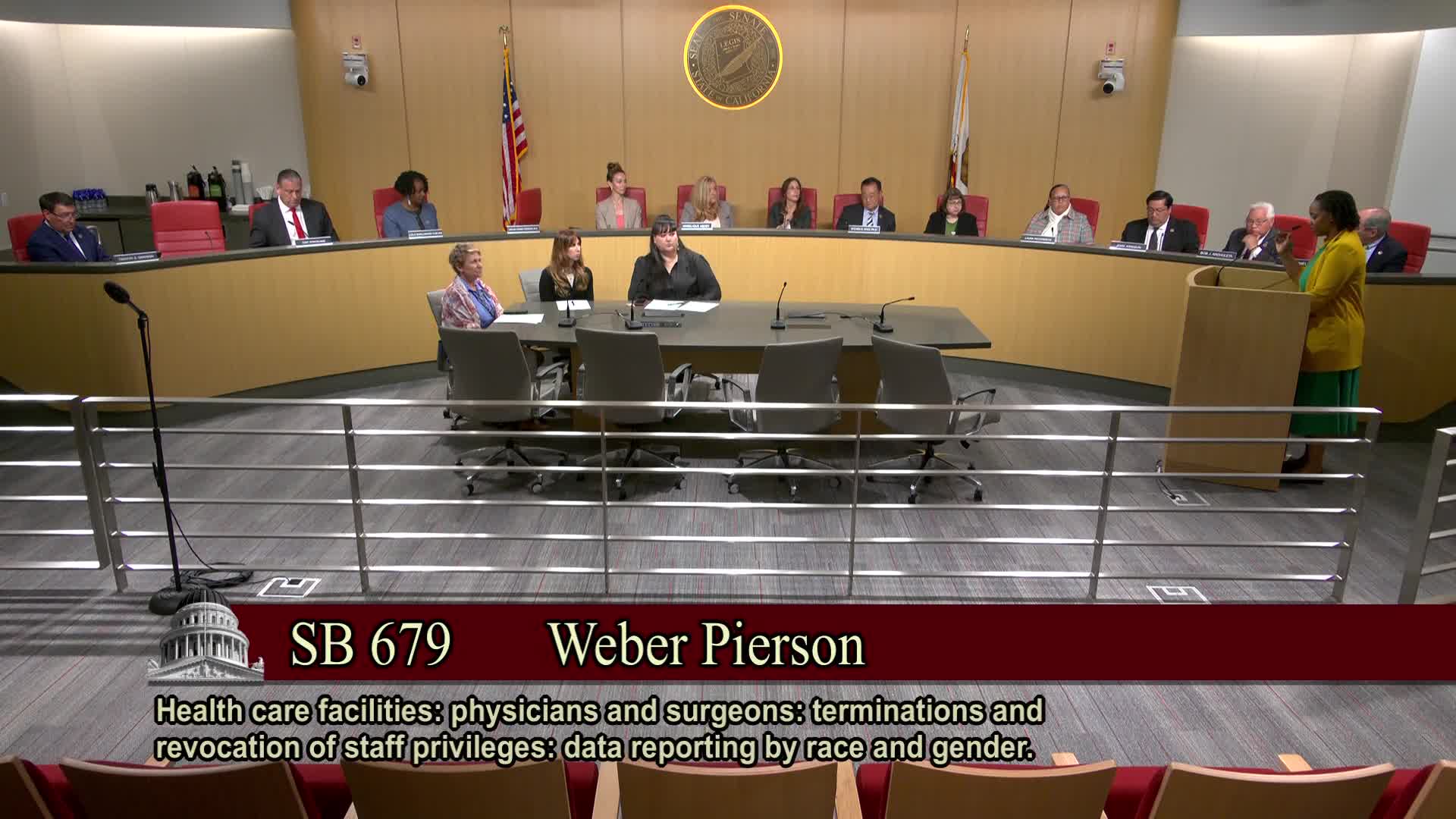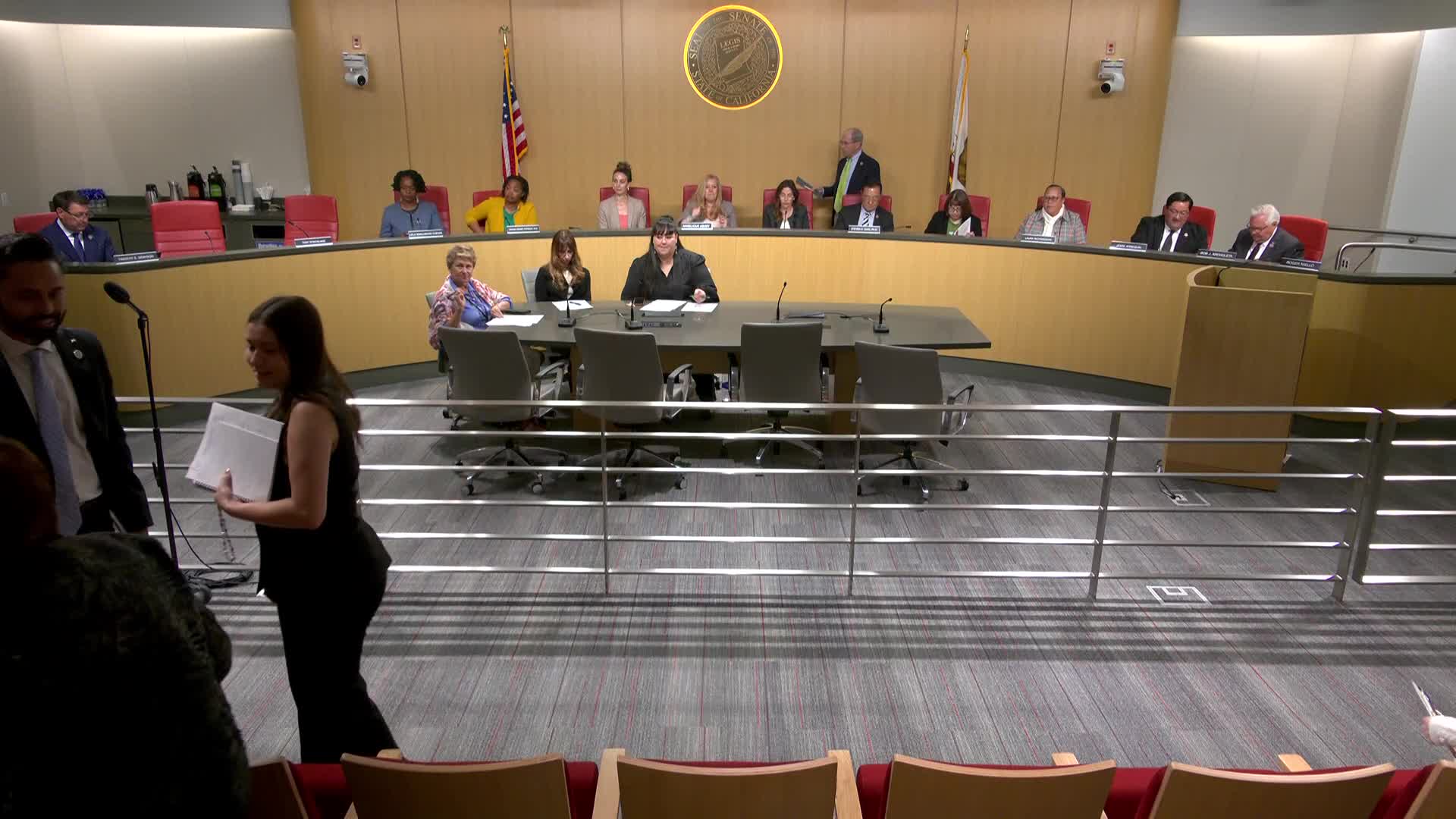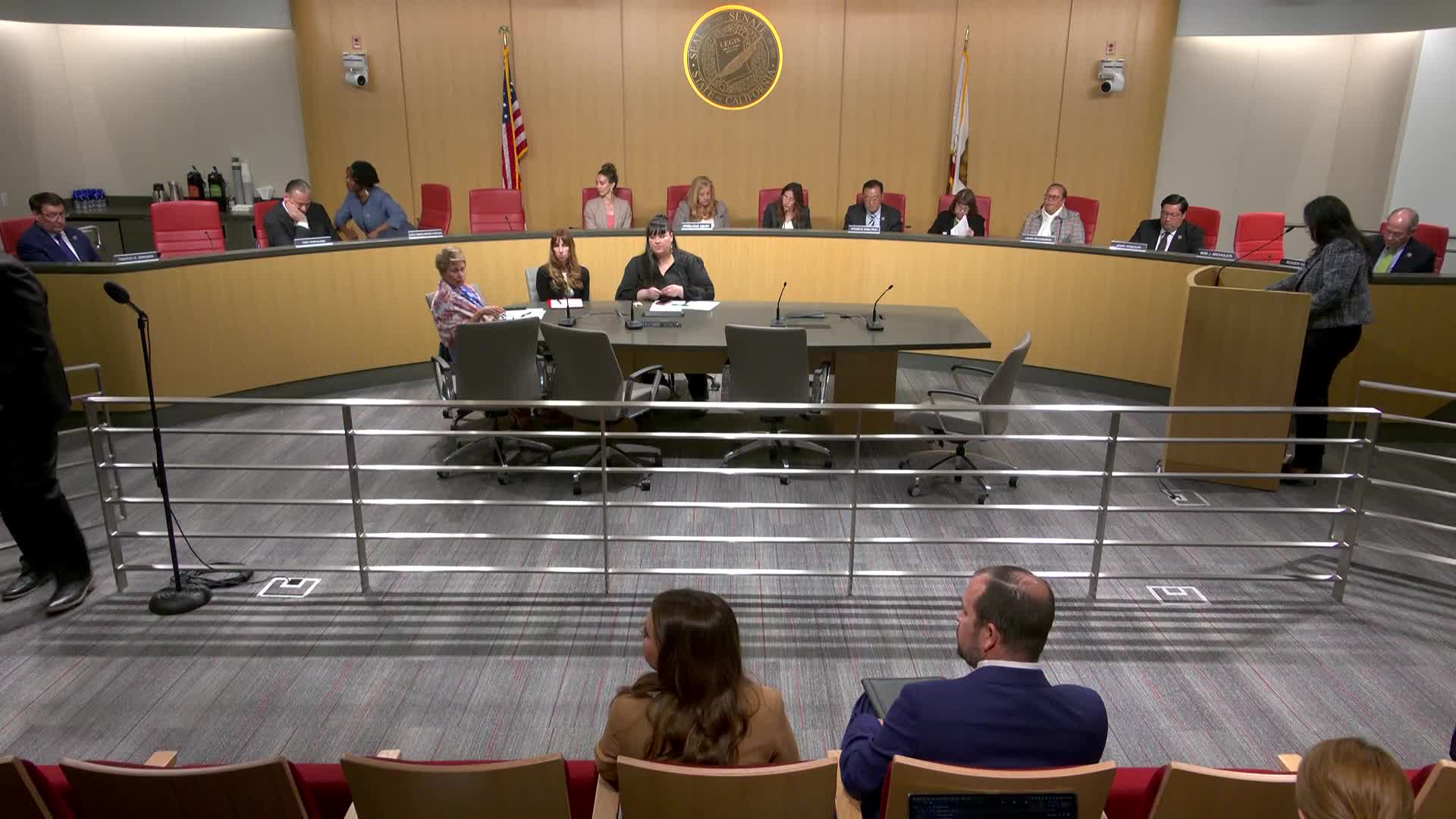Article not found
This article is no longer available. But don't worry—we've gathered other articles that discuss the same topic.

Committee advances bill to let governor opt California into interstate reciprocity for online college courses with consumer protections

Bill to collect statewide, de‑identified data on hospital credentialing and disciplinary actions advances after committee testimony on racial disparities

Senate committee backs bill requiring home‑improvement contracts to disclose use of subcontractors and identify them on request

Committee moves bill to align autism-service provider qualifications into Business and Professions Code

